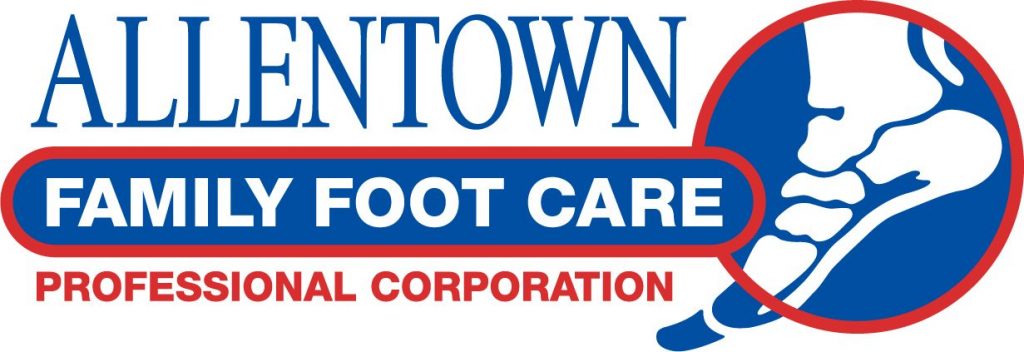Achilles Tendonitis
Achilles tendonitis is a common condition seen by podiatrists, particularly in athletes and active individuals. It occurs when the Achilles tendon—the thick band of tissue connecting the calf muscles to the heel bone—becomes inflamed due to overuse or excessive strain. This condition can cause significant pain and stiffness in the back of the leg, making it difficult to walk, run, or engage in physical activities. If left untreated, Achilles tendonitis can lead to more severe injuries, including tendon rupture.
Causes of Achilles Tendonitis
Achilles tendonitis often results from repetitive stress on the tendon, particularly in individuals who participate in activities that involve running, jumping, or sudden changes in direction. Common causes include:

- Overuse from Sports or Physical Activity: Athletes, especially runners and those involved in high-impact sports like basketball or soccer, are at higher risk due to repetitive stress on the tendon.
- Sudden Increase in Activity Level: Jumping into intense physical activity without proper conditioning can overload the Achilles tendon.
- Improper Footwear: Wearing shoes without proper arch support or cushioning can increase strain on the tendon.
- Tight Calf Muscles: Lack of flexibility in the calf muscles can place additional stress on the Achilles tendon.
- Biomechanical Issues: Flat feet or overpronation (excessive inward rolling of the foot) can increase tension on the tendon, leading to inflammation.
Symptoms of Achilles Tendonitis
Symptoms of Achilles tendonitis can vary in severity but often include:
- Pain and tenderness along the back of the leg or near the heel
- Stiffness in the Achilles tendon, especially in the morning or after physical activity
- Swelling or thickening of the tendon
- Difficulty flexing the foot or standing on tiptoe
- A “grating” sensation when moving the tendon
The pain typically worsens with activity and improves with rest, but in severe cases, it can persist even during inactivity.
Treatment and Management of Achilles Tendonitis
The treatment of Achilles tendonitis aims to reduce inflammation, relieve pain, and promote healing. Early intervention is key to preventing the condition from progressing into a more serious injury. Treatment options include:
- Rest and Activity Modification: Reducing or avoiding activities that put stress on the Achilles tendon allows it to heal. Athletes may need to temporarily stop high-impact sports or running.
- Ice and Anti-Inflammatory Medications: Applying ice to the affected area and taking nonsteroidal anti-inflammatory drugs (NSAIDs) can help reduce swelling and pain.
- Stretching and Strengthening Exercises: Physical therapy plays a crucial role in rehabilitation. Stretching the calf muscles and strengthening the Achilles tendon can improve flexibility and reduce strain.
- Heel Lifts or Orthotics: Using heel lifts in shoes can relieve pressure on the tendon by reducing the load it bears during activities. Custom orthotics may be recommended for individuals with flat feet or biomechanical issues.
- Immobilization: In more severe cases, a walking boot or brace may be necessary to limit movement and allow the tendon to heal.
If the condition does not improve with conservative treatment, more advanced options such as shockwave therapy or, in rare cases, surgical intervention may be considered.
Preventing Achilles Tendonitis
Preventing Achilles tendonitis, especially in athletes or those engaged in sports, involves taking several proactive steps:
- Gradually Increase Activity Levels: Avoid sudden increases in the intensity or duration of physical activity, allowing your body to build strength and flexibility over time.
- Warm-Up and Stretch: Incorporate proper warm-up and stretching routines before exercising, with a focus on stretching the calf muscles and Achilles tendon.
- Wear Supportive Footwear: Ensure your shoes provide adequate cushioning and arch support, particularly for running or high-impact sports.
- Strengthen Calf Muscles: Regular strength training focused on the calf muscles can reduce stress on the Achilles tendon during physical activities.
- Cross-Train: Incorporating low-impact activities like swimming or cycling into your routine can help maintain fitness while reducing strain on the tendon.
When to See a Podiatrist
If you experience persistent pain, swelling, or difficulty performing everyday activities due to Achilles tendonitis, it’s important to seek professional evaluation. Ignoring the early signs can increase the risk of tendon rupture, which requires more extensive treatment and recovery time. Athletes and active individuals should not return to sports until their symptoms have fully resolved, as premature activity can lead to re-injury.
At our office, we offer a comprehensive approach to managing Achilles tendonitis, including diagnostic tools such as imaging to assess the severity of the condition. Team AFFC provides tailored treatment plans that include physical therapy, orthotic solutions, and advanced therapies to help you recover quickly and safely, allowing you to get back to your sport or activity stronger than ever.
